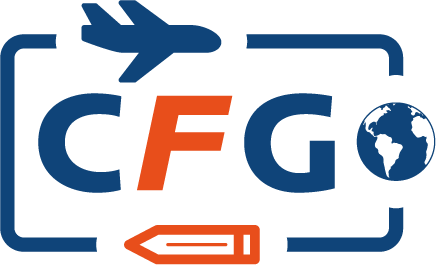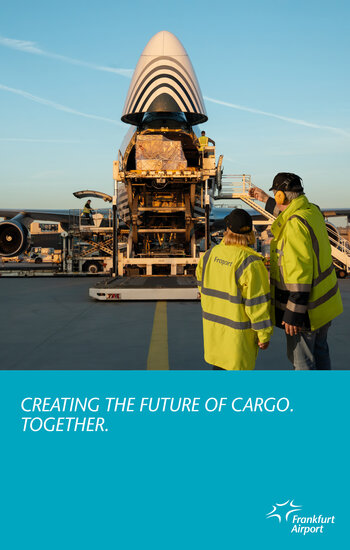Another Aviation Connect has come to an end – held in Copenhagen, Denmark, 14-16OCT25 and, for the second time running, bringing together 6 streams: ASA and ULD Care on Day 1, Air Freight Pharma, GSE & RAMP OPS, RFS, and ACHL on Day 2, with all 6 joining together on Day 3. The event took place at the Comfort and Clarion Hotels, directly at Copenhagen Airport which, incidentally, celebrates 100 years of travel and transport this year. A spectacular Networking Dinner at Europe’s oldest circus on 15OCT25, rounded off the very varied program. CargoForwarder Global was there and these are the takeaways.
“I went to the circus and here’s what it taught me about the air cargo industry…,” might be the start of a LinkedIn post, these days. Well, CargoForwarder Global did go to the circus and to echo Aviation Connect’s Master of Ceremonies, Chris Notter, in his closing words on 16OCT25, talking about air cargo, it was and “will always be powered by Passion, People, Purpose – that has been on full display this week. […] The focus, content and enjoyment mix is what makes this conference so exceptional.” The pole artist at the start of the show at Wallman’s Circus, symbolized the flexibility, strength and agility that this industry requires. DynaMike’s juggling act with machetes and a chainsaw, and his supported unicycle display with four semi-voluntary audience members, demonstrated the challenges faced – often with dangerous goods – and the collaboration needed to make things happen, with clear communication to ensure safe delivery at all times. And the energetic medley of singers in various red PVC outfits, threw up all kinds of connections: “So, tell me what you want, what you really, really want!” is obviously the quest to understand customer needs – while at the same time, asking for absolute data transparency so that supply chains can run as efficiently as possible – otherwise it all boils down to sheer ‘Madness’…

Aviation Connect in numbers
As always, the Aviation Connect/Air Cargo Handling Logistics (ACHL) Conference brought together airline executives, ground handlers, handling agents, airports, digital innovators, industry authorities and experts, RFS providers, ULD managers, Pharma specialists, and a whole host of stakeholders involved in the complex world of aviation and air cargo logistics. Around 650 attendees registered this time, with the greatest footfall at the 50+ exhibition booths being registered on the second day. Eva International Media once again delivered a well-organized event from beginning to end, with a convenient floor plan connecting company tables, exhibition hall and main conference hall together, while the individual streams had access to conference rooms in the adjoining hotel linked by a sheltered walkway. And great catering throughout.
Aviation Connect in topics
As you would expect, recurring themes dominated the agenda; digitalization, automation and AI, attracting and retaining future talent, safety, standardization, collaboration, and sustainability. Chris Notter’s opening remarks on 14OCT25, celebrated the people as “the industry’s heartbeat, muscle, and engine room” since they are the professionals who “make the impossible look routine” – even under extreme conditions. Hassan Al Houry, Chairman of Menzies, noted that global aviation has largely recovered to pre-pandemic productivity levels, yet workforce strength and investment capacity remain constrained by thin margins, and called for “one industry, one voice”. CFG would like to see cargo being included more in next year’s industry development overview, since it appeared more as a byline in this year’s ASA/McKinsey update. Nevertheless, one positive step forward was Waleed Youssef marking the launch of the Accredited Training Accreditation Program (ATAP), which will enable staff mobility and standardized professional development across companies because training quality will be recognized. Swissport and Airport College were the first to become ATAP accredited, with Menzies also signed up and in the pipeline.
Digital Transformation and Data: From Legacy to Leadership
Panels on digital transformation focused on the need to overcome legacy systems and fragmented data. The adoption of the IATA ONE Record protocol and AI-driven solutions was (again) identified as key to improving efficiency, transparency, and sustainability. Yet, success depends on data quality, interoperability, and a mindset shift towards collaboration: Outdated habits and siloed mindsets – not technology – are the main barriers. AI applications ranging from resource forecasting and irregularity prediction to customer analytics are already being tested, however, poor data quality threatens their scalability. University lecturers, Diarto Aalders and Mitch Beintema, presented research showing how AI-driven pricing and load optimization can boost cargo profitability by up to 15%, shifting operations from reactive to predictive planning. Both stressed that “AI will not replace people, but companies ignoring AI will be replaced.”
AI and visibility
Two absolute premieres took place at this year’s Aviation Connect: the Women in Air Cargo Awards held at the Networking Dinner on 15OCT25, celebrating the inspiring women within our industry – and the use of an AI Jury and compere. Two finalists were shortlisted for each of the seven categories. Congratulations go to all nominees and the final winners: Airlines = Janet Wallace, Air Canada Cargo, Airports = Jaisey Yip, Changi Airport Group, Cargo Handlers = Noor Salman, dnata, Freight Forwarders / Integrators = Andrea Gruber, MSC Air Cargo, IT = Anna Balan, Awery Aviation Software, RFS / GSSA = Petra Justová, 4RCargo, and Supply Chain Partnership Award = Irma van Buuren, Unilode Aviation Solutions.
Eva International Media had created an AI Jury to determine the final winners based purely on “facts, records and evidence”, and amazed the circus audience with a highly realistic AI compere on video, explaining the idea of the awards. Real people in the shape of sponsor WFS’s CEO, Inge Briand de Crèvecoeur, and Chris Notter, called and presented the awards.
From Compliance to Culture
People remain at the heart of air cargo logistics, even as technology and automation accelerate – this was the clear message throughout. Panel discussions repeatedly stressed the need for transparent recruitment, fair remuneration, and positive culture. The panelists shared strategies for engaging younger generations, leveraging digital platforms, mentoring, and promoting women in leadership. Building clear career pathways and encouraging cross-network opportunities were seen as vital to attracting and retaining top talent in an increasingly competitive environment.
And people need to operate in an open culture that see errors as a basis for learning. Speakers warned against bureaucratic overload in audit systems and urged managers to empower frontline teams to learn, not fear mistakes. “When people on the floor own their errors, that’s progress,” noted one panelist. Calls to reward problem reporting and simplify internal governance captured the spirit of pragmatic reform.
Safety, Standards, and Regulation
Picking up an ACHL topic from the previous year, the panel on standardization illustrated the many variations that different airlines expect, which create complexity, compliance problems, and ultimately safety issues. The proliferation of audits was critiqued, with calls for more meaningful, risk-based oversight rather than box-ticking exercises. The introduction of new EASA regulations for ground operations was discussed, with a three-year window for implementation and a clear message: act now, standardize, and embed a just culture where frontline staff are empowered to learn from errors. IOSA and ISAGO programs were cited as examples of standardized audits that reduce redundancy and promote accountability. One action point to ground service providers, brought up by audience member, Kester Meijer from Air France KLM Martinair Cargo: “Please name 5 stupid rules that I, as an airline am imposing, so that I can remove these.”
And then there were…
From the many panel discussions and presentations, other takeaways were:
Sustainability is now viewed as both a business imperative and a license to grow. Airports such as Copenhagen (CPH) and Heathrow (LHR) outlined ambitious plans for electrification, SAF incentives, and waste recycling. Yet, financing these transitions remains challenging due to thin margins and uneven regulatory frameworks. Collaboration across the ecosystem – including airports, handlers, regulators and shippers – is essential for real progress.
Handling agents: Debates between global handling giants and independent players revealed a nuanced landscape. While scale brings standardization and investment in digital systems, independence allows for agility and local expertise. Both models are needed: quality, reliability and customer-centricity consistently trumped cost in industry priorities. “Size will not define success – adaptability will,” was the outcome.
Looking Ahead: Purpose, Passion, and People
This year’s conference closed with calls to action: standardize processes where possible, reward those who raise safety issues, and keep the focus on people, purpose and passion. The future of air cargo will be shaped by those who combine innovation with collaboration, resilience with responsibility, and who remember that, even in a digital age, it is people who turn chaos (or a circus, in this case) into performance. The next Aviation Connect/ACHL conference is scheduled for 26-29OCT26 – this time in London, UK, to also mark Heathrow’s 80th anniversary – a fitting stage (having seen the airport’s future-focused cargo strategy) for the next chapter in air cargo’s ongoing evolution.





